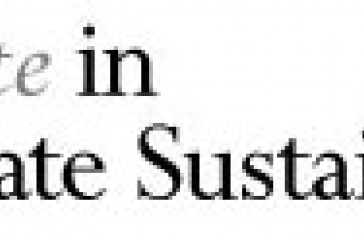UNH Satellite-Based Snow Research to Help Predict Flooding Events, Identify Climate Trends

UNH's Whittemore School of Business & Economics and Sustainability Academy partner with NH Businesses for Social Responsibility to launch a new professional Certificate in Corporate Sustainability
DURHAM, N.H. - Researchers from the University of New Hampshire (UNH) have been awarded a $650,063 competitive federal grant from NASA to support work using satellite remote sensing data that will help identify regions in the northern U.S. and Southeast Asia where springtime rain and snowmelt could lead to flood conditions.
Funding for the project, "Passive Microwave Detection of Snowmelt and Runoff," comes from NASA's Experimental Program to Stimulate Competitive Research (EPSCoR), a merit-based program established to strengthen U.S. research and education in science and engineering.
UNH researchers will use both current and historical microwave measurements being gathered by two Earth-orbiting satellites at scales relevant for water resources management. Specifically, they will look for abrupt transitions in the microwave signal that occur when the liquid water content of snow increases, which indicates the potential onset of large volumes of meltwater.
"Developing this capability, which doesn't yet exist, will give us a much better idea of when and where flooding caused by snowmelt will occur," says the project's lead scientist, professor Jennifer Jacobs, a civil engineering faculty member and director of UNH's Environmental Research Group. "For situations like the recent flooding in the upper Midwest, our approach could help predict how the situation will unfold so people in the area have a better idea of what to expect."
Jacobs says the satellite microwave data will be used "in a way that was not envisioned when the satellite was launched." Specifically, the large-scale, big-picture datasets will be analyzed in a manner where, for example, a water resources manager could use the information to control reservoir levels based on the incoming snowmelt as detected by the precision microwave measurements. Steps could then be taken to avoid both potential flooding and to ensure an adequate water supply for the summer season.
At the other end of the spectrum, the research will use the 30-year microwave record gathered almost daily by satellites to analyze the longer-term record of springtime snowmelt and so-called "rain-on-snow" events that saturate snowfields and can mobilize rapid, large-scale melting.
Says Jacobs, "Using these data we can look at the climate change story; are things changing over time, are we seeing more of these rain-on-snow events, is springtime melt occurring earlier and, if so, is it occurring throughout a watershed or just in lower regions?"
UNH is conducting the study in partnership with the Army Corps of Engineers Cold Regions Lab (CRREL) in Hanover, and the NASA funding will support two Ph.D. students at UNH and several undergraduate student researchers at UNH and Dartmouth College for the length of the project.
The university's NASA EPSCoR grants are administered under the federal agency's Space Grant program, which is housed at the UNH Institute for the Study of Earth, Oceans, and Space.
In a press release issued by her office upon announcement of the award, U.S. Senator Jeanne Shaheen (D-NH) stated, "Investing in research and technology development at our universities is critical to maintaining our innovative edge in the global marketplace. I'm pleased UNH has received this award and delighted it will support development important both to our state and our nation."
The University of New Hampshire, founded in 1866, is a world-class public research university with the feel of a New England liberal arts college. A land, sea, and space-grant university, UNH is the state's flagship public institution, enrolling 12,200 undergraduate and 2,300 graduate students.
-30-
Editors and reporters: Jennifer Jacobs can be reached at mailto:Jennifer.Jacobs@unh.edu"
Latest News
-
July 2, 2024
-
June 18, 2024
-
June 18, 2024
-
May 17, 2024
-
May 14, 2024

















































